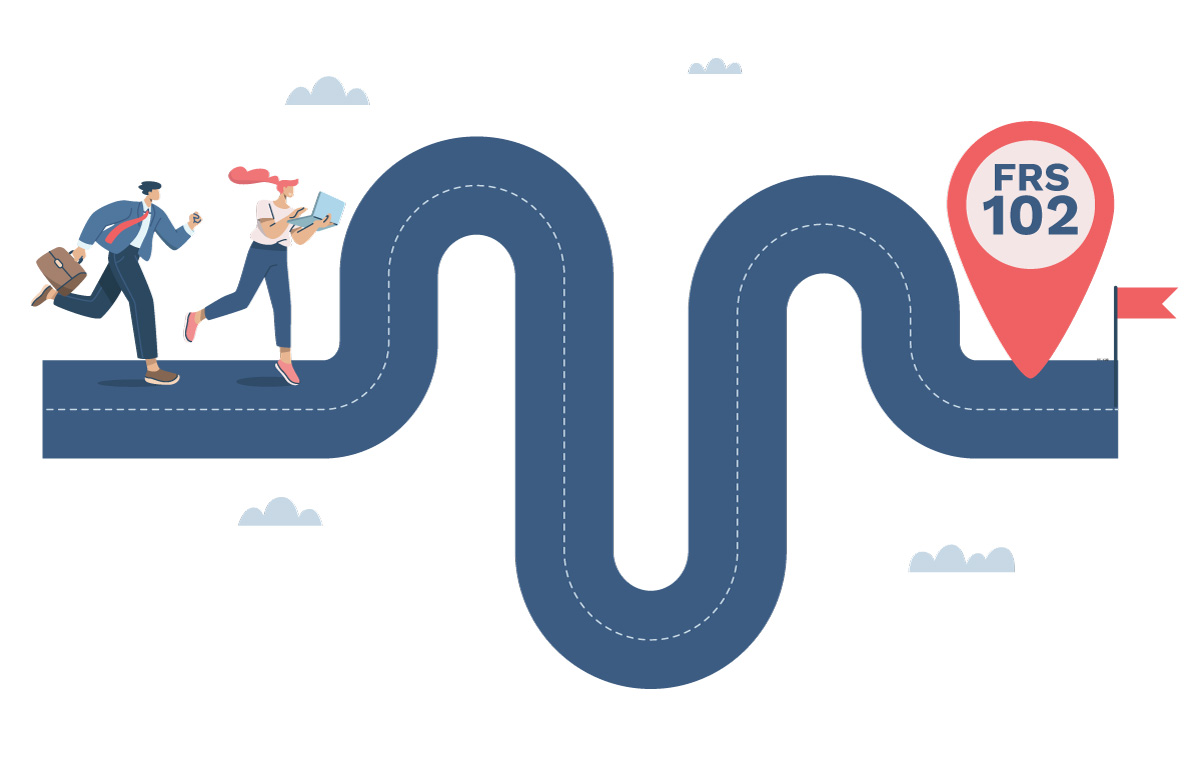Buyers guide for FRS 102


Automate workflows
A software solution can automate your lease accounting tasks with an end-to-end lease management process to track leases; ensure you never miss a renewal or break clause, reduce manual time to complete tasks and increase the overall efficiency and accuracy of your lease accounting process.

Provide actionable insights
With a full view of your portfolio and data, a dedicated software solution ensures the right data is surfaced and shown, as and when needed, allowing you to make informed decisions at pace, enabling better growth for your business.

Meet and ensure compliance
A key requirement for your solution is being able to meet all accounting standards including IFRS 16, FRS 102 for compliance. A software solution can assist in accurate lease classification, automate complex calculations and produce disclosure reports for ease of audits, giving you peace of mind that you’re balance sheets are accurate and compliant.

Grant document access
Acting as a central document repository, a software solution can be your secure, centralised location to be able to access and view various leases and associated documents. This creates a single auditable location with everything you need, for all employees.

User-friendly
Utilising a software system enables you to have purpose-built software and features, while being visually appealing, with additional functionality like customisable dashboards to tailor it to exactly what you and your business needs. Your solution should be user friendly and easy to navigate for all users so you’re less reliant on a single user to produce reports / check the data.

Scalable solution
Ensure your investment is future proof with a solution that can grow as you do, so that no matter what the future holds, you’re one step ahead of your lease and portfolio needs, whether that’s locally or, globally, make sure the solution is future ready.

Experienced, UK centric support
Lease accounting can be a complex task, and you need to trust the support you receive is correct, from an organisation who has history and experience with implementing new standards for a wide array of businesses. Being based locally for development, support and implementation ensures that the nuances of UK leasing is properly understood, and your software is designed to handle these.

Offer quantifiable savings for your business
You need to see a return for your investment. Your solution should offer quantifiable savings to your team and business through automation, reduced risk and monetary savings.
Excel’s Lack of auditability
With each new version of a spreadsheet, auditability is decreased because there is no continual thread tying the reports to the original data. Have you ever found an error in multiple workbooks and tried to trace it back to the source? The risk of error increases when analysis is performed manually and at a macro level, as opposed to holistic analysis using actual source data. When it comes to lease accounting compliance, it’s critical to ensure auditability to your leases.
Functional capacity
Spreadsheet architecture limits the amount of data and logic that can be accepted. When processing capacity is exceeded, the spreadsheet can no longer handle multiple circular references or additional data.
Reliability
In many organisations, one employee is often responsible for managing a large spreadsheet with complex formulas and links to other workbooks. If the employee leaves the firm, or if the “bus factor” comes into play, will anyone else know how to use the spreadsheet? What if the file becomes corrupted? This situation can create a serious obstacle for auditability, data security, reporting, and any decisions that are contingent on the information in those spreadsheets.
Increased business risk
Lack of automation and systems integration often requires manual entry of data received. Human error combined with lack of operational controls can lead to mistakes, inaccurate reporting and ultimately non-compliance.
Accounting Compliance
As you evaluate lease accounting software providers to ensure compliance with FRS 102 and look to clarify the capabilities and services offered, the checklist below provides questions you can ask to help make the right selection for your business.
 Property database:
Property database:
Make sure all key property and lease information is held in a central location.
- Lease administration
- Acquisition and disposal tracking
- Integrated document management
- Specialty leases
- Customisable setup
 General ledger:
General ledger:
Drive your operations forward with powerful, flexible accounting and insights.
- Disclosures, balance sheet and group reports
- Automated AP and AR workflows
- Integrated fixed asset depreciation
 Accounts payable:
Accounts payable:
Ensure data accuracy and increase your productivity.
- A full suite of payment options
- Multi-currency compliance
- Indexed, stepped and negotiated rates
- Expense control alerts
 Accounts receivable:
Accounts receivable:
Streamline your billing processes with a simple and intuitive setup.
- Automated invoicing
- Debt management and settlement
- Discrepancy notifications
- Account history and balances
- Configurable reports
 Purchase – to pay:
Purchase – to pay:
Achieve complete visibility with flexible spend management in a connected solution suite.
- Intelligent invoice scanning
- Payments and reconciliations
- AP integration for full life cycle control
 Budgeting and forecasting:
Budgeting and forecasting:
Increase efficiency and improve collaboration with a centralised budgeting tool.
- Leasing assumptions
- Current and historical data
- Single-click creation and posting
- Configurable analysis
- Graphical reporting
 Asset Management:
Asset Management:
Provide a single source of the truth for all accounting needs.
- Centralised data repository
- Collated data from multiple sources
- Integration with operational systems
 Data Analytics:
Data Analytics:
Turn your data repository into a smart hub of insights, outputs and actions.
- AI-powered document abstraction
- Configurable reporting
- Multiple report outputs
- Data visualisation
- Data management services